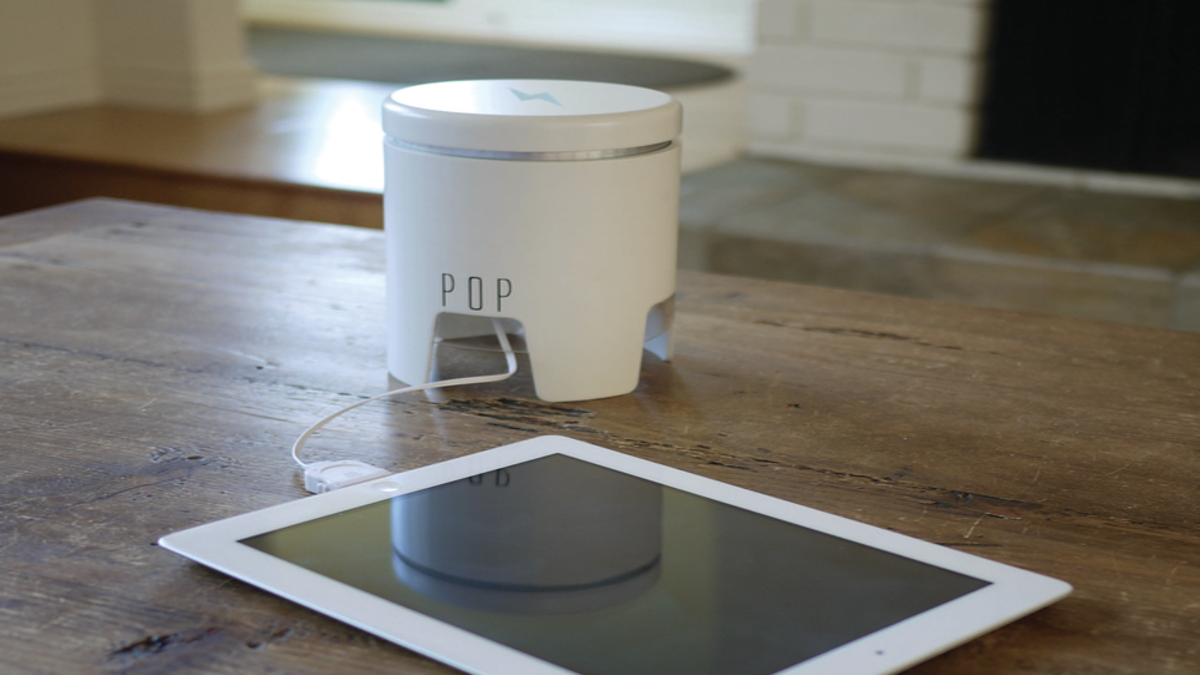Apple reportedly pulls plug on project behind portable charger
The iPhone maker refuses to license the rights to its Lightning connector for use in a portable charging station, its CEO says in announcing refunds to Kickstarter donors.

The technology lab behind a Kickstarter-funded project to build a portable device-charging station announced today that it will refund its crowdfunded $139,170 to donors after Apple refused to license rights to its Lightning connector.
POP, a minimalist portable power station, was billed as "the intersection of charging design" and was expected to feature four retractable cords for charging a variety of devices, including iOS and Android devices. The portable charging station featured a 26,000 mAh battery capable of charging 10 iPhones, according to Junior Edison, the company behind the effort.
In addition to its portable convenience, Junior Edison touted POP as a device that would aid survival when natural disasters kill power, offering many days of charging power for portable devices.
However, Apple was not charged over having its proprietary connector combined with micro-USB connectors, according to Junior Edison's CEO and chief inventor, Jamie Siminoff.
"After applying to Apple (which is now required for Lightning), we learned that they are no longer willing to approve a product that uses the Lightning charger alongside any other charger (including their own 30-pin - seriously)," he said in a blog post on Kickstarter. "Just like that, POP could no longer fulfill its true promise."
CNET has contacted Apple for comment and will update this report when we learn more.
Unveiled in September, Lightning replaced the 30-pin adapters that date back to early iPods. Its key benefit is the smaller iPhone connector, which is 80 percent smaller than the previous connector. However, the new technology also represented a costly change for people who have multiple cables that they use in their car, home, or at work.
Edison Junior video of the device:

